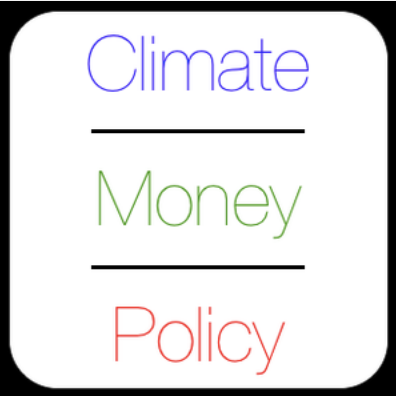Coffee, the Climate Tax and 43 CEOs
/Last week a group of CEOs from 43 large companies whose sales totaled $1.2 trillion in 2014 wrote a letter. That's today's topic. To explain why that letter was such a good thing you need an appreciation for some of the hidden economic costs our economy is suffering as a result of climate change. To tell that story we're looking at coffee.
There's a global demand for coffee. It's traded on exchanges and Americans have come to fetishize the stuff and the purveyors that deliver it to us. Despite our love for coffee and our apparent love for Starbucks (in their capacity as the high priests of the bean) the Seattle-based goliath raised their prices last year. This move was seen as risky. Why mess with success? Why risk good will? The answer is layered, complicated and to some extent involves the company passing on a cost that they could have absorbed... but they did have a new cost. That cost came in the form of an environmental disruption that ratcheted prices up on coffee by 52% virtually overnight. How did that happen?
A huge percentage of coffee is grown in Costa Rica, Guatemala, El Salvador, and Brazil. Unfortunately all four of those countries experienced widespread crop loss simultaneously. "Coffee Rust" is a fungus that used to only grow to a certain altitude. In our warming world however its fungal habitat is higher up the mountainside where no one thought the plants needed protection. This happened while 1500 miles away drought was hitting the coffee plantations in Brazil. The resulting losses illustrate how the coffee industry is exposed to climate risk in a way that can pushed prices up for billions of consumers all over the world. So why am I telling you this story?
I'm telling you because you probably hadn't heard it before. I'm telling you because there's a tax that you pay on good of all kinds not just coffee. This tax is imposed by climate change and it drains family budgets but families don't know it. On the other hand Starbucks does know it and they're not alone. Which brings us to the letter.
There's a general sense that climate change as a subject has too much baggage. That to talk about it is to lump yourself in with people that post political rants on Facebook and get avoided at cocktail parties; but not everyone shares that feeling. Some look at climate change through another lens. A lens not of environmentalism but of finance. Indeed, the best and smartest business leaders know that business has to look at climate as a matter of risk management. 43 CEOs that share this attitude wrote the open letter asking for action on climate at the meeting of world leaders in Paris later this year. CEOs from companies and industries as diverse as Volvo, Ikea, and Swiss Re are all looking at climate as a serious risk management issue. One they can't manage alone.
Movement along the continuum from "unaware and uninterested" in climate to "actively managing" it's risks is either slow and difficult or jarring and expensive but sooner or later it pits companies up against the tragedy of the commons. That age old question "Why should we be fixing this on our own?" Increasingly, groups like these 43 are forming spontaneously to divide the cost of action and put unified pressure on policy makers. So at last Dear Reader, you fid yourselves at a place to take action. Like these CEOs you should start questioning your business partners about the future. Specifically, if they're looking at the future as a place where climate increases risk. Your accountants and attorneys, your bankers and brokers, all of them need to be asked about their preparations for climate instability. Lots of people have a hand in the future you and your organization live in. Make sure they're looking at the future the same way you are.
Write a post or email me and let me know what your company is doing (or not doing) to move along that spectrum.


